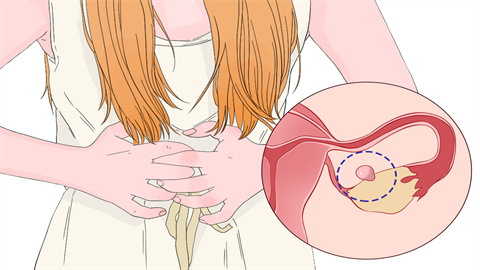What causes polycystic ovaries on the right side?
In general, polycystic changes in the right ovary may be caused by factors such as irregular sleep patterns, high mental stress, polycystic ovary syndrome (PCOS), hyperprolactinemia, and adrenal cortical hyperplasia. If discomfort symptoms occur, it is recommended to seek timely medical evaluation and treatment at a reputable hospital. Specific analysis is as follows:

1. Irregular sleep patterns: Long-term熬夜 or reversed day-night rhythms can disrupt endocrine cycles, affect estrogen secretion, and trigger polycystic changes in the right ovary. Maintain regular sleep habits by setting consistent bedtime and wake-up times, ensuring 7–8 hours of sleep daily, and avoiding electronic screens before bedtime.
2. High mental stress: Prolonged anxiety and tension can impair hypothalamic-pituitary function, leading to hormonal imbalance and promoting polycystic appearance of the ovaries. Relieve stress through physical activity, listening to music, and other relaxation techniques; maintain emotional stability and avoid prolonged exposure to high-pressure environments.
3. Polycystic ovary syndrome (PCOS): Endocrine and metabolic abnormalities cause ovulatory dysfunction and arrested follicular development, resulting in polycystic ovaries. Under medical guidance, medications such as dydrogesterone tablets, ethinylestradiol cyproterone acetate tablets, and spironolactone tablets may be prescribed. Additionally, weight control and reduced intake of high-sugar foods are recommended.
4. Hyperprolactinemia: Excessively high prolactin levels suppress ovulation, leading to polycystic changes in the right ovary, often accompanied by menstrual irregularities. Under medical supervision, medications such as bromocriptine mesylate tablets, vitamin B6 tablets, and cabergoline tablets may be used. Avoid long-term stimulation of the nipples.
5. Adrenal cortical hyperplasia: Excessive androgen secretion by the adrenal glands interferes with normal ovarian function and triggers polycystic changes. Under medical guidance, medications such as hydrocortisone acetate tablets, dexamethasone acetate tablets, and prednisolone tablets may be prescribed. In severe cases, adrenalectomy for adrenal cortical adenoma may be required.
In daily life, it is important to maintain regular sleep patterns and a balanced diet, reduce intake of high-fat and high-sugar foods, engage in moderate exercise to maintain a healthy weight, learn to regulate emotions and prevent accumulation of psychological stress, and undergo regular gynecological and endocrine check-ups for early detection and intervention.




